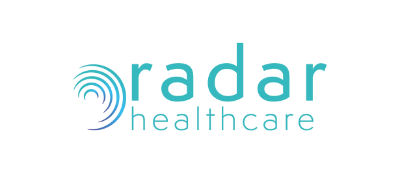The digital gap in the NHS
18 January 2022
When speaking with NHS workers, both clinical and non-clinical, during the King’s Fund online event in December, it became clear that the main short-term issue with digitisation plans was the uncertainty in using digital methods after decades of paper-based working.
This uncertainty can be split into two groups:
- Those who are uncertain about how the system will seamlessly integrate into their existing processes
- Those who are uncertain about how to use the products and services accurately.
All change
At the online event where our National Business Development Manager Terry Murphy contributed, there was a concern amongst NHS workers that time and headspace to learn a new way of working would be a challenge.
There was a call to support GPs and other clinicians who are often too busy to change their methods due to patient backlogs. Similar questions on how Trusts can release time to better IT infrastructure and not overwhelm their workforce were posed to the panel too.
Henrietta Mbeah-Bankas, Head of Blended Learning and Digital Literacy at Health Education England, suggests that the implementation of leaders in both change management and digital skills would help to support the transformation. Involving senior management would also encourage full digital adoption by showing cohesion across the departments.
The skills gap
Enthusiasm for change aside, the online audience stressed that the digital skills gap in NHS workers who, rightly so, have prioritised their clinical skills over digital literacy now needs to be addressed.
One audience member believed that training medical students in the use of digital technology could resolve the issue going forward, but current NHS staff may struggle to adapt as easily. With the NHS being a huge organisation with thousands of departments, it also must be asked what should be taught as a priority and how should it be taught?
Simple tasks to some may be incredibly complex for others and, with this, data input could vary hugely. Dr Annabelle Painter, Clinical Fellow-AI and Workforce for Health Education England and NHSx, believes that a ‘levelling up’ of all skills across the NHS is due, but with resources stretched so thinly already, how can we justify this time in learning specific skills?
Learning on the job
Radar Healthcare is designed to help NHS staff with everyday tasks, so the administrative side becomes less time consuming – especially with the stretch on resource in mind. Processes are simplified and even automated, so users don’t have to worry about reading lengthy manuals or understanding the back end of the system.
We ensure that our modules are intuitive, choosing everyday language over technical jargon with natural language processing (NLP) supporting users in data input and search functions. How-to guides are available on module pages, so anyone can walk themselves through a process in real-time whenever they need to.
Wherever you find yourself working, Radar Healthcare can be operated to its full capacity. This means you can still do your everyday job whilst using the system on a phone or tablet. For example, you can complete an audit on the move (even if you are offline), once complete, it simply uploads as soon as you are back in range of the internet.
To see how easy Radar Healthcare is to use and operate, book a demo with us today.
Book a demo






